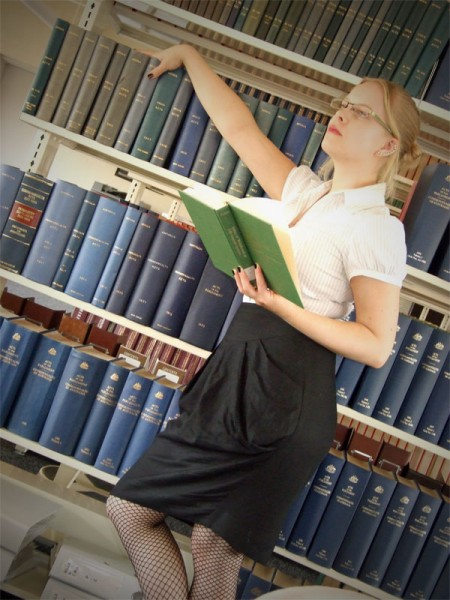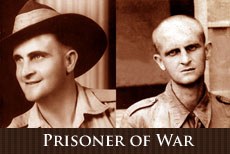Time for the Friday Follow Twitter Interview! It has been three weeks since the last and I shall catch up in the coming weeks. Hoping to have 52 interviews by the end of the year. During the Christmas break I plan to see how I can view patterns and common threads within the responses. Last couple of weeks for me have been focused up end of year examinations and reports for school.
This week’s special guest on the Friday Follow Twitter Interview is Sonja Barfoed, an artist and librarian, a resident in Australia’s capital city, Canberra, and an educator with a passion for teaching. Please make the time to explore Sonja’s elegantly designed web site and gallery. Well, let’s begin…
1. Please share a little about yourself with the readers
I’m an artist and librarian, so I’m very interested in finding out about how art practitioners find information. I’d like to mention the word passion, but this tends to make me think more of tropical fruit than the fact that I find my work exciting. My two interests are linked, as I tend to create art and conduct research in the same way – starting with a rough sketch and then getting so involved that it almost becomes a meditative, obsessive state. I temper this working process when I’m explaining searching or drawing techniques, otherwise it comes across too intensely when I nerd out about Boolean operators or ways of seeing.
I would describe myself at being on the fringe of education – library work involves a lot of informal teaching and I also conduct an adult education life drawing class.
I find teaching exhilarating because it allows me to unpack thought processes and translate them into something that is legible for others, and think about how I can help them solve an issue and improve their skills. It’s also satisfying to think “I referenced the expletive out of that! It was referenced within 2.54 centimetres of its life!” – and to be able to help.
2. Describe the role played by social media in education
I think that social media’s role in sharing information has the potential for many benefits, and it also means that education providers stay relevant in terms of both content and actual course delivery. Many library university courses include tute sessions for students via the use of twitter hashtags which also help to foster a sense of community and connectedness (particularly important for distance courses). This also helps provide a communication channel that is probably preferred by many students, and allows them to nurture future professional networks with other students.
3. Tell me about your relationship with social media. How do you feel about social media?
I think that using social media becomes part of a lifestyle choice – the platforms that I use regularly become part of my daily routine. It’s very personally and professionally beneficial, it’s easy to find out about events, discover new things and access relevant articles, posts and news.
I use Twitter on a daily basis, as I have a personal account and also tweet on behalf of two library association accounts.
I consider LinkedIn to be a grown-up and professionally aware sort of Facebook, and I have only really found the true benefit of this platform by being more active in the various groups.
I use Dopplr (a travel-oriented “service”) sporadically for informal research on travel destinations, recommended vegetarian restaurants and to calculate my travel footprint.
There are a few good social media sites for “cataloguing” book collections or libraries (like LibraryThing or Goodreads), but I haven’t explored them in great depth – a librarian with poorly organised books is a little like the old adage of a mechanic with a poorly working car.
Apart from this, I have a “friends with benefits” relationship with social media platforms, because I am happy to try new things, and if they don’t prove useful, then I don’t want to perpetuate the sunken cost fallacy. This is also because I have undertaken several social media courses for library staff, so these encourage an attitude of dipping in and out of different resources.
I’ve used social media to assist in finding information for reference queries in my library job, and to contact authors when their publications have been a little obscure to locate through traditional means. Social media provides so many possibilities for sharing, connecting and discovering information, and it’s fun to embrace something new.
Here’s a mini technological social history timeline:
My Grandpa established the use of punch cards in an Australian government department which was considered revolutionary at the time. Later in life, he engaged with lots of new technology and would download music and write war stories on his computer.
Starkly different, back in my day, we walked to school barefoot in the snow, chopped hardwood with a blunt spoon and didn’t have Twitter. There wasn’t really snow, but there is an amazing difference between my grandfather’s experiences, my childhood, now and of course the future. In my lifetime, we were only just being introduced to email, chat and blogs, so all these newer options are really just evolution. Using social media is about embracing change and learning of different ways to communicate, it’s about perspective, not the technology itself.
4. What do you feel are your strengths?
The strength of my library role is the unpredictable element and the ability to learn something every day. I enjoy finding unique correlations between resources or seemingly disparate topics (and it’s also a source of inspiration and ideas for art projects). My strength is that I like to find answers, but sometimes I need to rein in my urge to be a renegade librarian! (“library all the things!”)
5. What advice do you like to share with people?
If you have a question, ask a librarian. If we are working on a computer before you approach us, you won’t be interrupting – we are probably helping another borrower or learning about different databases or resources. Or on an off day, perhaps looking at some funny links, or honing our shushing techniques (jokes!).
We are there to help you, so don’t hesitate to ask a question. If I time travelled back to art school, I would have asked the library staff for a lot more help, and it would have saved me large amounts of my limited student budget.
Did you know that if your library doesn’t have a book, they can borrow it –just for you- from another library? I find this really exciting because it means that the whole world of knowledge is in reach! My secret pastime of watching infomercials is probably becoming obvious from this spiel – I will allow myself just one more paragraph of library-spin:
What kinds of questions can you ask a librarian? Anything! To demonstrate the range of topics, some of the best queries I’ve received have sought information about goldfish memory capacity, permed hairstyles from the 1980s, obtaining divorce court papers, and how to write an assignment on the inventor of Sellotape (Richard Drew).
6. Are there any questions you would like to ask?
As an educator, can you think of ways that your library can work better with you to help your students? Are you working with your library to cultivate your social media presence and content?
Thank you Sonja! You know Sonja, if I was to reincarnate I would return as a teacher~librarian, probably in a primary school. I feel that I could achieve so much more as an educator in that role. Your stories of your grandfather and growing up grabbed my attention. I would have loved to have met my grandparents!
Readers, please add Sonja to your Twitter streams and remember to explore her web site as well:
Sonja on Twitter: @SonjaBarfoed
Sonja’s artist website: www.sonjabarfoed.com









Recent Comments